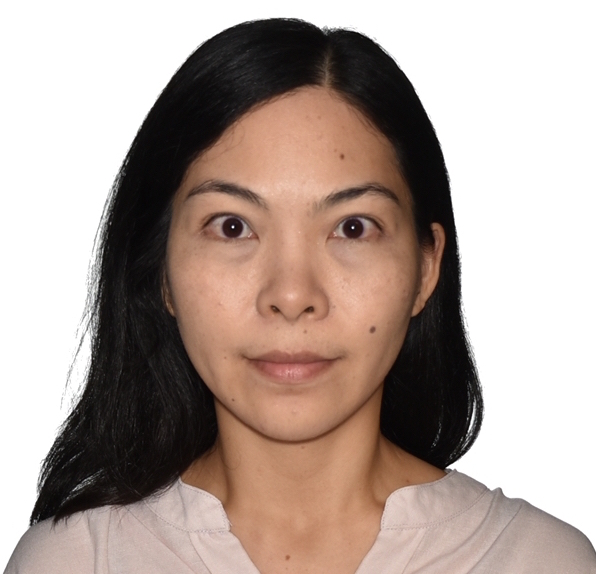
Sihwei CHEN
Assistant Research Fellow
Website
Expertise
Formal semantics; Cross-linguistic comparison; Formosan languages; Fieldwork
Education
Ph.D. in Linguistics, University of British Columbia (2018)
Address
128 Academia Road, Section 2, Nankang, Taipei 11529, Taiwan
Telephone
02-2652-5042
E-mail
sihweichen@gate.sinica.edu.tw
My research interest lies in the area of formal semantics and its interaction with pragmatics and with (morpho-)syntax. I am particularly interested in cross-linguistic variation of composing meaning. My work combines fieldwork and theory, attempting to develop multiple methods of accessing speakers' intuition. My main fieldwork language is Atayal, an Formosan language spoken in northern Taiwan, and I have recently started working Bunun and Paiwan. My ongoing research projects cover issues in the area of tense, modality and mood, the semantics of sentence-final particles, bias in polar questions, and negation.
- 2019-2~ Assistant Research Fellow, Institute of Linguistics, Academia Sinica
- 2019-4~2022-7 Lecturer, Indigenous Languages Hsinchu Learning Center, National Tsing Hua University Nanta Campus
- 2020-8~2021-1 Adjunct Assistant Professor, Institute of Taiwan Languages and Language Teaching, National Tsing Hua University Nanta Campus
- 2023-8~2024-7 Adjunct Assistant Professor, Institute of Linguistics, National Tsing Hua University
- 2024-2~2024-6 Lecturer, Indigenous Languages Taipei Learning Center, National Taiwan Normal University Extension
- The syntax and semantics of the Atayal negators iyat and ini’ and their implications (NSTC 112-2410-H-001-019)
- Biased questions in Atayal and a cross-linguistic comparison (NSTC 111-2410-H-001-113)
- Formal properties of final particles in Atayal and a comparative study of Formosan languages (MOST 109-2410-H-001-089-MY2)
- Topics in the tense and aspect systems of Atayal and Bunun (MOST 108-2410-H-001-005)
Co-organizer
- The 13th Workshop on Formal Syntax and Semantics (FOSS-13), Academia Sinica, Taipei, Taiwan, Oct. 16–17, 2020
- The 29th Northwest Linguistics Conference (NWLC-29), UBC, Vancouver, CA, April 26-27, 2013
- Sihwei Chen. In press. Evidence for two types of future semantics by negation. In M. Ryan Bochnak, Eva Csipak, Lisa Matthewson, Marcin Morzycki, and Daniel K. E. Reisinger (ed.), The title of this volume is shorter than its contributions are allowed to be: Papers in honour of Hotze Rullmann (UBC Occasional Papers in Linguistics, Volume 9). Vancouver, BC: UBC Occasional Papers in Linguistics.
- Sihwei Chen. To appear. Towards the semantics of Atayal polar question particles and a semantic typology. In Mira Grubic, Jeanne Lecavelier, Prarthanaa Manjunath Bharadwaj, and Malte Zimmermann (ed.), The Proceedings of 10th TripleA Workshop for Semantic Fieldworkers.
- Sihwei Chen. 2024. External and internal negation and temporal asymmetries in Atayal. In Elizabeth Zeitoun and Shu-Chuan Tseng (ed.), Linguistic diversity, but unity in research: Celebrating the Twentieth Anniversary of the Institute of Linguistics, Academia Sinica (Language and Linguistics Monograph Series 65), 297-340. Taipei, Taiwan: Academia Sinica.
- Chen Sihwei, Matthewson Lisa. 2023. A sense of time and world. In Carmen Dagostino, Marianne Mithun, and Keren Rice (ed.), The Languages and Linguistics of Indigenous North America, 577-598. Berlin: Mouton de Gruyter. http://dx.doi.org/10.1515/9783110600926-025
- Chen Sihwei. 2022. Modality in elicited data and spontaneous texts: A case study of Atayal. In Jozina Vander Klok, Núbia Ferreira Rech, and Simone Guesser (ed.), Modality in Underdescribed Languages, 257-294. Berlin/Boston: De Gruyter Mouton. http://dx.doi.org/10.1515/9783110721478-008
- Sihwei Chen and Haowen Jiang. 2020. Ways of talking about the past: -in- and =in in Bunun. In Henry Y. Chang, Hui-chuan J. Huang (ed.), Papers from the Austronesian Formal Linguistics Association 25, Journal of the Southeast Asian Linguistics Society Special Publication No.5, 1–21. Honolulu: University of Hawaii Press. https://evols.library.manoa.hawaii.edu/handle/10524/63143
- Sihwei Chen. 2019. Graded possibility: Distinguishing epistemic modals in Atayal. In Sae-Youn Cho (ed.), Proceedings of the 12th Generative Linguistics in the Old World in Asia & the 21st Seoul International Conference on Generative Grammar, 419–428. Seoul, Korea: Hankook Munhwasa. https://glowlinguistics.org/asia12/proceedings/
- Chen, Sihwei. 2018. When the progressive and result state meet: The Atayal cyux/nyux. In Matthewson, Lisa, Erin Guntly and Michael Rochemont (eds.), Wa7 xweysás i nqwal’utteníha i ucwalmícwa: He loves the people’s languages. Essays in honour of Henry Davis, pp. 243–258. Vancouver, BC: UBC Occasional Papers in Linguistics vol. 6.
- Chen, Sihwei, Vera Hohaus, Rebecca Laturnus, Meagan Louie, Lisa Matthewson, Hotze Rullmann, Ori Simchen, Claire K. Turner, Jozina Vander Klok. 2017. Past possibility cross-linguistically: Evidence from 12 languages. In Ana Arregui, Maria-Luisa Rivero and Andres Salanova (eds.), Modality Across Syntactic Categories, 236-287. Oxford: Oxford University Press. http://10.1093/acprof:oso/9780198718208.001.0001
- Chen, Sihwei. 2018. Finding semantic building blocks: Temporal and modal interpretation in Atayal. PhD dissertation, University of British Columbia. DOI: https://dx.doi.org/10.14288/1.0373089.
- Bertrand Anne, Aonuki Yurika, Sihwei Chen, Henry Davis, Joash Gambarage, Laura Griffin, Marianne Huijsmans, Lisa Matthewson, Daniel Reisinger, Hotze Rullmann, Raiane Salles, Michael D. Schwan, Neda Todorović, Bailey Trotter, Jozina Vander Klok. 2022. Nobody’s Perfect. Languages 7(2), 148. http://dx.doi.org/10.3390/languages7020148
- Chen Sihwei, Vander Klok Jozina, Matthewson Lisa, Rullmann Hotze. 2021. The ‘experiential’ as an existential past. NATURAL LANGUAGE & LINGUISTIC THEORY 39(3), 709-758. http://dx.doi.org/10.1007/s11049-020-09488-6
- Matthewson Lisa, Chen Sihwei, Huijsmans Marianne, Morzycki Marcin, Reisinger Daniel, Rullmann Hotze. 2019. Restricting the English past tense. Snippets (37), 61-64. http://dx.doi.org/10.7358/snip-2019-037-mchr


